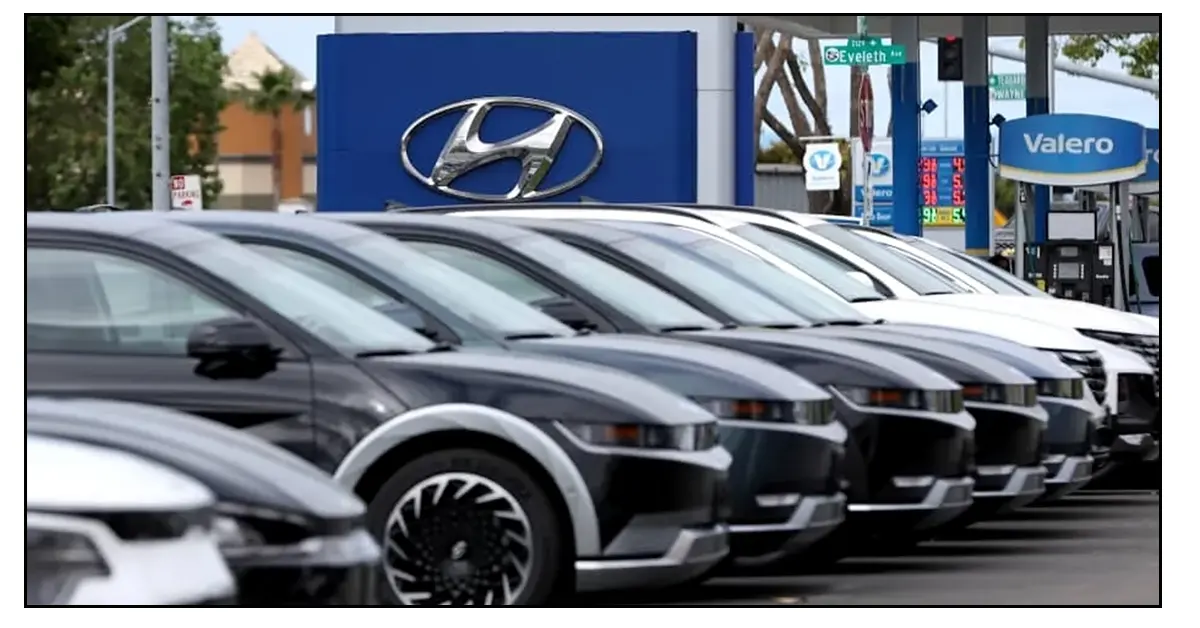In recent news, due to safety concerns, Hyundai and Kia Recall 2023 have issued recalls for several of their car models in 2023. This recall affects thousands of vehicles and is an important topic for car owners to be aware of. It is crucial to understand the details of the recall, the potential risks associated with the defective parts, and the steps that need to be taken to ensure the safety of drivers and passengers.
Table of Contents
The History of Hyundai and Kia Recalls: A Brief Overview
Hyundai and Kia have had a history of recalls. In 2014, Hyundai recalled over 1 million vehicles due to a faulty brake light switch that could cause the brake lights to not illuminate. This issue could lead to accidents, as other drivers may not know when the vehicle brakes.
In 2017, Kia recalled over 500,000 vehicles due to an airbag defect that could prevent them from deploying in the event of a crash. This defect posed a significant risk to the safety of drivers and passengers.
These recalls have hurt the reputation of both Hyundai and Kia. Customers may lose trust in the brands due to concerns about safety and reliability. It is crucial for these companies to address these issues and regain consumer confidence.
The Reason for the Latest Recall: Uncovering the Safety Concerns
The latest recall by Hyundai and Kia is due to safety concerns related to engine fires. The companies have identified a potential defect in the engine compartment that could cause a fire. This defect is believed to be caused by a manufacturing error that may result in oil leaks, leading to engine fires.
The safety concerns associated with engine fires are significant. Not only can they cause damage to the vehicle, but they also pose a serious risk to the safety of drivers and passengers. Engine fires can occur while the vehicle is in motion, increasing the chances of accidents and injuries. It is crucial for car owners to be aware of this recall and take the necessary steps to address the issue.
The Affected Models: Which Hyundai and Kia Cars Are Included in the Recall?
| Brand | Model |
|---|---|
| Hyundai | Sonata |
| Hyundai | Santa Fe |
| Hyundai | Veloster |
| Kia | Optima |
| Kia | Sorento |
| Kia | Sportage |
The recall affects several models from both Hyundai and Kia. For Hyundai, the affected models include the Santa Fe Sport SUVs from 2013 to 2022, Sonata sedans from 2011 to 2022, Tucson SUVs from 2014 to 2022, and Veloster coupes from 2013 to 2022.
Kia’s affected models include the Optima sedans from 2013 to 2022, Sorento SUVs from 2014 to 2022, Soul hatchbacks from 2014 to 2022, and Sportage SUVs from 2014 to 2022.
To check if your car is included in the recall, you can visit the official websites of Hyundai and Kia or contact your local dealership. It is important to take this step as soon as possible to ensure your safety on the road.
The Potential Risks: What Are the Dangers of the Defective Parts?
The defective parts in the affected Hyundai and Kia models pose several potential risks. The main concern is the risk of engine fires, which can occur while the vehicle is in motion. Engine fires can lead to accidents, injuries, and even fatalities.
Besides the immediate risks associated with engine fires, there are also long-term risks. Engine fires can cause significant damage to the vehicle, resulting in costly repairs or even total loss. Furthermore, if an engine fire occurs while driving, it can lead to panic and loss of control, increasing the chances of a serious accident.
It is crucial for car owners to be aware of these potential risks and take action to address them. Ignoring the recall can have severe consequences for both the safety of the driver and the financial well-being of the owner.
The Consequences of Ignoring the Recall: Why You Should Take Action
Ignoring the recall can have serious consequences. From a legal standpoint, if an accident or injury occurs due to a known defect that was not addressed, the car owner may be held liable. This can result in legal battles, financial losses, and damage to one’s reputation.
From a financial perspective, ignoring the recall can also lead to costly repairs or even the total loss of the vehicle. Engine fires can cause extensive damage that may not be covered by insurance if the recall is not addressed. Additionally, the resale value of a vehicle with a known defect may decrease.
It is crucial for car owners to take action and address the recall. By doing so, they can ensure their safety on the road, protect their legal and financial interests, and maintain the value of their vehicle.
The Recall Process: How to Check if Your Car is Affected and What to Do Next
To check if your car is affected by the Hyundai and Kia recalls, you can visit the official websites of both companies or contact your local dealership. On these websites, you will find a section dedicated to recalls where you can enter your vehicle identification number (VIN) to check if your car is included in the recall.
If your car is included in the recall, it is important to take immediate action. Contact your local dealership to schedule an appointment for repairs. The dealership will provide further instructions on what needs to be done and how long it will take to fix the issue.
It is crucial to follow through with the repair process as soon as possible. Engine fires are a serious safety concern, and addressing the issue can help prevent accidents and injuries.
The Repair Process: What to Expect When Getting Your Car Fixed
When getting your car fixed as part of the recall, there are a few things to expect. First, you will need to schedule an appointment with your local dealership. Due to the large number of vehicles affected by the recall, there may be a wait time for repairs.
During the repair process, the dealership will inspect your vehicle and replace any defective parts. This may involve replacing the engine or making repairs to specific components. The dealership will provide you with a timeline for the repairs and keep you updated on the progress.
It is important to follow any instructions provided by the dealership and to keep all documentation related to the recall and repairs. This will be important for future reference and potential insurance claims.
The Manufacturer’s Response: How Hyundai and Kia Are Addressing the Safety Concerns
Hyundai and Kia have addressed the safety concerns and are addressing the issue. Both companies have issued statements acknowledging the recall and have provided instructions for car owners on how to check if their vehicle is affected.
Besides the recall, Hyundai and Kia are also implementing measures to prevent future recalls. They are conducting thorough investigations into their manufacturing processes to identify any potential issues and improve quality control. These measures are aimed at ensuring that similar safety concerns do not arise in the future.
It is important for car owners to be aware of these efforts by Hyundai and Kia and to stay informed about any updates or developments related to the recall.
Staying Safe on the Road with Hyundai and Kia
In conclusion, the Hyundai and Kia recalls are important topics for car owners to be aware of. Understanding the details of the recall, the potential risks associated with the defective parts, and the steps that need to be taken can help ensure the safety of drivers and passengers.
By checking if your car is affected by the recall and following through with the repair process, you can protect yourself from potential accidents, injuries, legal battles, and financial losses. It is crucial to take action and stay informed about any updates or developments related to the recall.
Staying safe on the road should always be a top priority, and by addressing the Hyundai and Kia recall, car owners can take an important step towards ensuring their safety.
FAQs for Hyundai and Kia Recall 2023
What is the Hyundai and Kia recall for 2023?
The Hyundai and Kia recall 2023 is a recall campaign initiated by Hyundai and Kia to address potential safety issues in certain models of their vehicles.
Which models are affected by the recall?
The recall affects certain models of Hyundai and Kia vehicles, including the Hyundai Tucson, Santa Fe, and Veloster, as well as the Kia Stinger, Sorento, and Sportage.
What is the reason for the recall?
The recall is being conducted to address potential safety issues related to the vehicles’ electronic brake systems, which may malfunction and cause a loss of control while driving.
How many are affected by the recall?
The recall affects approximately 180,000 vehicles in the United States and Canada.
What should I do if the recall applies to my car?
If your vehicle is affected by the recall, you should contact your local Hyundai or Kia dealer to schedule a free repair. The repair will involve updating the software in the electronic brake system to address the safety issue.
Is there a cost associated with the repair?
No, the repair will be performed free of charge for owners of affected vehicles.






